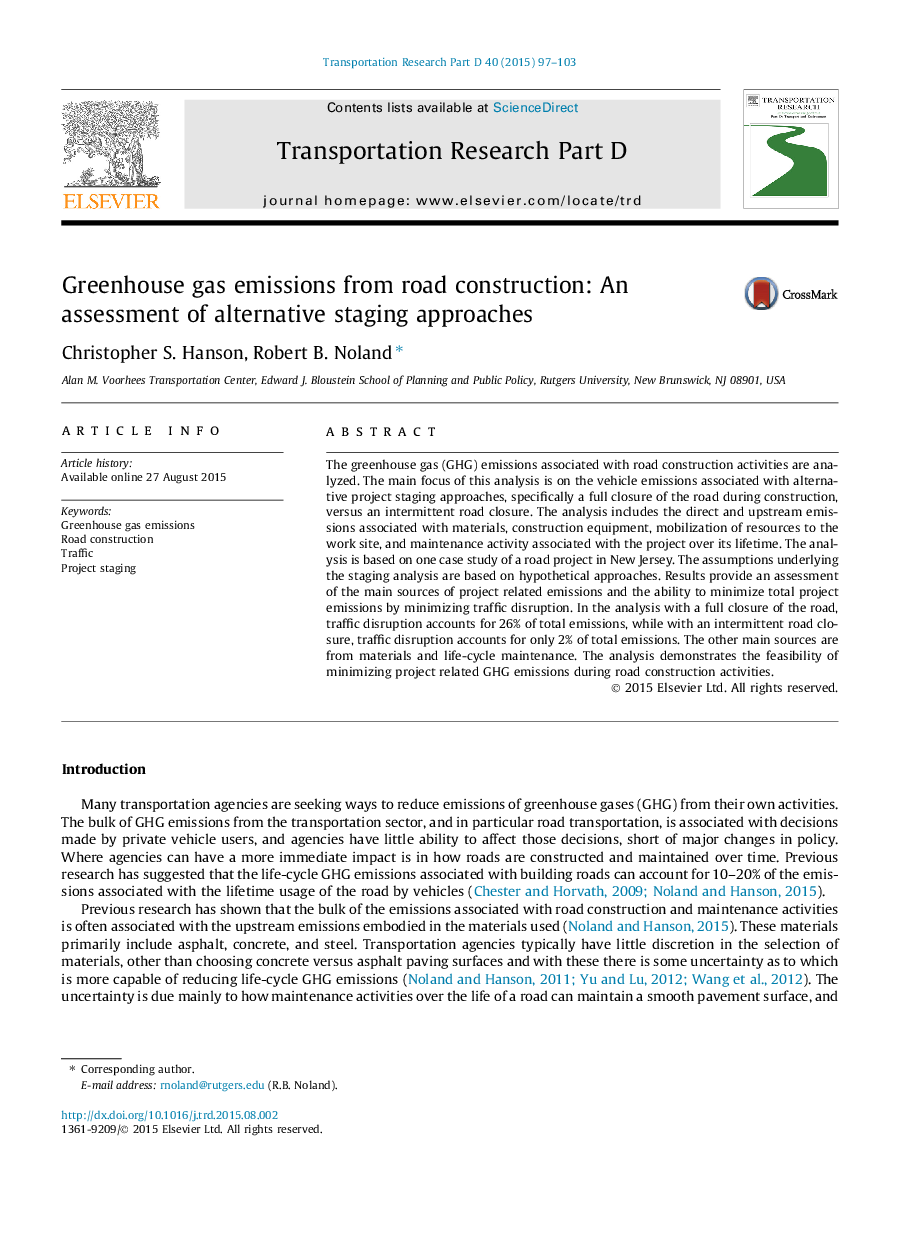| Article ID | Journal | Published Year | Pages | File Type |
|---|---|---|---|---|
| 1065678 | Transportation Research Part D: Transport and Environment | 2015 | 7 Pages |
•Analysis of the project related greenhouse gas emissions from road construction.•Focus is on comparing the emissions from two alternative project staging approaches.•An intermittent road closure minimizes project related emissions compared to a full road closure.•Materials and life-cycle maintenance are the two largest sources of project-related emissions.•Transportation agencies have some ability to minimize emissions by minimizing construction impact on traffic.
The greenhouse gas (GHG) emissions associated with road construction activities are analyzed. The main focus of this analysis is on the vehicle emissions associated with alternative project staging approaches, specifically a full closure of the road during construction, versus an intermittent road closure. The analysis includes the direct and upstream emissions associated with materials, construction equipment, mobilization of resources to the work site, and maintenance activity associated with the project over its lifetime. The analysis is based on one case study of a road project in New Jersey. The assumptions underlying the staging analysis are based on hypothetical approaches. Results provide an assessment of the main sources of project related emissions and the ability to minimize total project emissions by minimizing traffic disruption. In the analysis with a full closure of the road, traffic disruption accounts for 26% of total emissions, while with an intermittent road closure, traffic disruption accounts for only 2% of total emissions. The other main sources are from materials and life-cycle maintenance. The analysis demonstrates the feasibility of minimizing project related GHG emissions during road construction activities.
